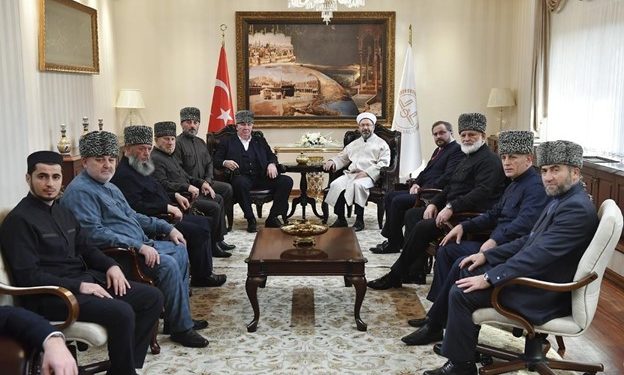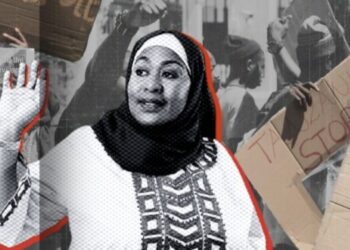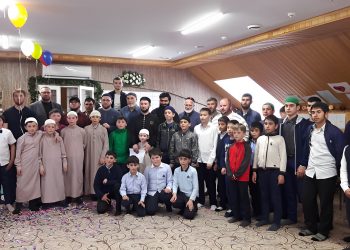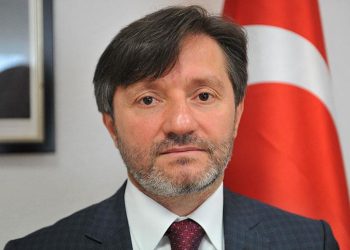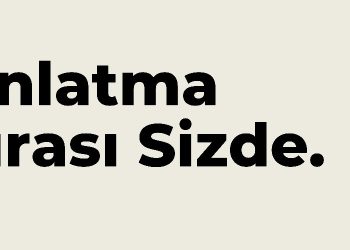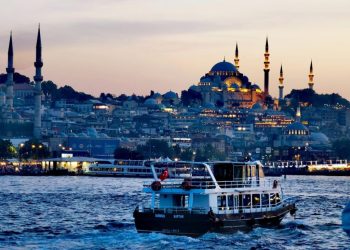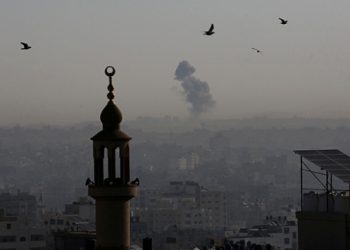Caucasus Foundation is a non-profit, non-governmental organization that operates to protect and develop the socio-cultural identities of Caucasians in both Caucasus and their diaspora community. For this purpose, it publishes copyrighted and translated works, and reports that shed light on the history of the Caucasus and periodicals on the developments in the Caucasus and the social and cultural studies of Caucasians. It carries out studies such as enlightening/informative conferences and seminars on the socio-economic, geopolitical, and strategic structure of the Caucasus to the communities consisting of distinguished and interested people in different periods. In addition, the agency unit (Ajans Kafkas) was created to convey the current problems of the Caucasus and the Caucasian peoples to the international public opinion and notify them, broadcasting news on the internet every day in four languages in Turkish, English, Arabic, and Russian.
Could you provide brief information about what the North Caucasus region means for the Islamic world and Turkey?
The North Caucasus is a region with seven federal republics affiliated with the Russian Federation. This region is also a natural part of the Islamic world as it is a place with a sizeable Muslim population.
The Muslims of the North Caucasus had come under the hegemony of the new Russian administration established under the name of the Soviet Union with the October revolution that resulted in the collapse of Tsarism in 1917 and had spent more than seventy years under the Soviet administration with an atheist belief. When Soviet Russia collapsed in 1991, Islam in the North Caucasus was almost on the brink of extinction. People did not know anything other than saying, “We are Muslim.”
In the North Caucasus, there had been a powerful Sufi movement in the past, especially in the Dagestan region. Imam Shamil, the leader of the independence movement of the North Caucasus Muslims, is a representative of this tradition, known as the Muridism movement.
Furthermore, the Chechnya region is where the Qadiri sect is remarkably active. The effects of Kunta Haji Kishiyev, who brought the Qadiri sect to this region in the middle of the 19th century, are also noticed in today’s Chechnya. The martyred leader of the last Chechnya war of independence, Jahar Dudayev, was a member of the Qadiri sect.
How did the communication process begin with the North Caucasus region after the collapse of the Soviet Russian regime, and how did it develop?
After the collapse of the communist system, the Circassians living in Turkey met with their cognates, whom they had not met for more than seventy years straight away. The first journeys were made under very challenging conditions.
There were no proper border gates and crossings between Turkey and the former Soviet Union. Generally, departures were from the steep border gate to Batumi and from there to the Caucasus by train. Later on, ferries between Trabzon and Sochi were activated. Finally, flights to many different regions of the Caucasus started by air. In these meetings, first of all, the longing was relieved. Afterward, solutions were sought to annihilate the moral damage caused by the old system. The first observations were that there was significant moral destruction in the region.
We know that worship on the Eid-al-Adha (Eid of Sacrifice) has a special meaning for the region’s local people. Why do the region’s people attach great importance to Eid-al-Adha practices, and what do sacrifice traditions mean for them? How do the local people consider such practices?
At the point of eradicating the moral destruction experienced in the Caucasus, the Eid al-Adha campaigns by proxy in the region have made a very important contribution. Some Circassians who have gone to the region since 1992 determined to establish an organization to better lend a helping hand to their brothers here. First and foremost, they decided to slaughter the qurban [1] using donations they had collected from among themselves and the inner circles since 1992 in the republics in the Caucasus. The activity, which started with donations of roughly forty qurbans, turned into a non-governmental organization under the name of Caucasus Foundation in 1995 after its benefits were noticed and played a leading role in contributing to the shaping of the spiritual structures of the Muslim republics in the Caucasus.
Representatives of the Caucasus Foundation in all federal republics, such as the Republic of Adygea, Karachay-Cherkess Republic, Kabardino-Balkarian Republic, Chechnya, Ingushetia, Ossetia, Dagestan, and Abkhazia, implement campaigns of qurban by proxy, which still continues today.
Qurban campaigns have literally been very helpful. In these campaigns, going from village to village, very important data were obtained in determining their spiritual needs by establishing close ties with the people. It was very interesting that hundreds of people, including women, watched us when we slaughtered the qurbans in a village in the early days. We were also touched by the fact that while we were slaughtering the qurban by saying Takbir, some women wanted to participate in the Takbir loudly.
After a couple of Eids, the people watching us started the sacrifice for themselves in the following feasts, which showed how significant what we did was.
Qurban campaigns have indeed contributed to the creation of a very abundant environment. Thus, our teams that went to the region had the opportunity to reach even the most remote villages in every region of the Caucasus and established close relations with the people.
The Caucasus Foundation has been running the qurban campaign in the Caucasus for thirty years.
What is the relationship of Turkish NGOs with the Caucasus region? Shall you express the activities of the Caucasus Foundation in the region? Which type of activities are intensified in the region?
Thanks to the efforts to establish a dialogue with the Caucasus, which embarked on the qurban activities, other religious exercises were efficiently carried out thanks to the bridge built. Mass circumcision campaigns were held. Critical successes were achieved in distributing catechism books published in Russian and tens of thousands of Qurans obtained in cooperation with the Turkiye Diyanet Vakfi Foundation.
After gaining the people’s trust in the region, male and female boarding students were brought to the Quran courses associated with the Diyanet[2] in Turkey, and education was provided. The most vital necessity of the Caucasus was imams, who would lead the prayers in the mosques and lead the funerals.
It was about impossible to be provided by personnel from Turkey. As a matter of fact, hundreds of people were needed. It was costly to meet the sustenance and residence costs of an imam sent to Russia from abroad. Instead, middle-aged volunteers from different republics returned to their countries after training on leading prayers and burials in various education Centres, particularly in Manisa.
Particularly in the Republic of Adygea, the activities of the Caucasus Foundation have been very efficacious. According to the protocol between the Religious Administration of Adygea and the Caucasus Foundation, the exigence that religious officials going to the region to take reference from the Caucasus Foundation had very significant consequences. In this way, people who do not have adequate spiritual knowledge were prevented from going to the region and telling about Islam with imprecise and inaccurate information.
Likewise, the Caucasus Foundation filled the void left by a Saudi Arabian-based institution that opened a madrasah in the Kabardino-Balkarian Republic in the early days after the collapse of the Soviet Union and dropped out of education after a disagreement with the people of the region. The Caucasus Foundation financed the Kabardino-Balkarian Islamic Institute, enhance helped in keep it afloat.
The Caucasus Foundation has also provided guidance services to all voluntary organizations from the Black Sea to the Caspian region. In addition, it has helped Europe-based and Islamic organizations from different parts of the world, particularly the IHH, Milli Gorus, and Diyanet Foundation, to contact the region’s people.
What are the responsibilities of non-governmental organizations to perpetuate and enhance associations between the Caucasus region and Muslim geographies? In this sense, what way should be followed and what should be done?
The people of the North Caucasus are the autochthonous people of the region. In other words, they have lived in these lands since the earliest period of known history. They were defeated and expelled from their country in their fight for independence against the Russians for more than three hundred years. In particular, ninety percent of the Adyghe (Circassian) population lives outside the country in the diaspora. Recently, close relations have been developed between the Circassians living in the Caucasus and the diaspora Circassians.
It is essential to be as sensitive as possible in Islamic studies to be implemented in the Caucasus. Partners who know the area well should be sought when contacting this region. We witnessed various Islamic institutions, mainly Arabs, who entered the region for aid during the Chechen war of independence, stigmatized and excluded under multiple names.
As Russia is still very predominant in the region, it would be advantageous for Islamic NGOs to operate in the Caucasus to perform with partners of Caucasian origin.
To sum up, religious affairs are conducted by non-governmental organizations as associations or foundations in Russia. On a project basis, Qur’an courses, research institutes, and imam-hatip schools should be established within the region’s mufti offices.Although mosques are built near all the villages of the Caucasus, there are not sufficient mosques in the city centres or towns. Regardless of the number of congregations, Centres where Muslims can come together, should be established.
[1] Qurban: synonym in meaning ‘sacrifice’, ‘offering’ or ‘oblation.’
See also: https://yaqeeninstitute.org/omar-suleiman/episode-7-the-sacrifice-virtues-of-dhul-hijjah
[2] Directorate of Religious Affairs in Turkey





































